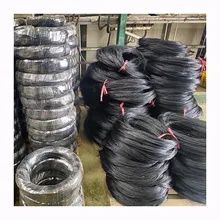Scrap generators are industrial or commercial entities that produce a surplus or defunct product, which is no longer useful in its intended capacity. This could be anything from old machinery and vehicles to electrical components and materials that have reached the end of their life cycle. The process of selling scrap generators involves identifying and contacting potential buyers, evaluating the scrap's condition and quantity, and negotiating a price. This service is crucial for businesses looking to recover value from their obsolete assets and also contributes to the sustainability of the environment by ensuring that these items are recycled rather than being sent to landfills.
The clientele for scrap generators spans a wide range of industries, including manufacturing plants, construction companies, and power generation facilities. These entities often require the services of scrap generators to dispose of large-scale equipment that is no longer operational or to manage the end-of-life cycle of products. The sale of scrap generators not only provides a financial return but also aids in the reduction of waste, which is beneficial for both business operations and the planet.
- Identification: The first step is to identify and separate the generators from other materials or equipment. This can be done through manual inspection or with the assistance of various tools and technologies.
- Assessment: Once the generators are identified, an assessment is made to determine their condition, quantity, and potential value. This assessment is crucial in negotiating a fair price with prospective buyers.
- Negotiation: With a clear understanding of the generators' condition and market demand, negotiations can take place to finalize the sale. This includes setting a price, agreeing to terms of sale, and ensuring that the logistics of transport and delivery are addressed.
Transportation: After a sale is made, the scrap generator is responsible for arranging and paying for the transport of the generators to the buyer's location. This can be done through various shipping methods depending on the size and quantity of the equipment being sold.
Types of Sale of Scrap Generators
The market for scrap generators is diverse, catering to a variety of needs and use cases. Each type of generator is characterized by its form, material composition, and the specific services it provides.
-
Lump: Often found in the form of unseparated steel and iron components, lumps are commonly used in foundries for melting purposes. They may also be utilized in electric arc furnaces for steel production.
-
Ash: Generated from incinerators or by burning coal or other materials, ash is frequently used in cement production as well as in the manufacturing of construction materials such as bricks and blocks.
-
Flake: These are thin pieces or powders of metals like aluminum, copper, and steel. They are used in various applications from the production of electrical components to the manufacturing of paints and coatings.
-
Slag: A byproduct from certain industrial processes, slag is used as a construction material in road building and as fertilizers due to its high mineral content.
How to choose sale Of Scrap Generators
Selecting the right type of scrap generator from Alibaba.com's extensive listings requires careful consideration of several factors:
-
Generator Capacity: Evaluate the quantity of scrap produced and choose a generator with adequate capacity for your business needs. Larger operations may benefit from industrial-scale generators capable of processing more materials at once.
-
Material Composition: The type of scrap you're dealing with will influence your choice. For instance, steel requires robust cutting torches while non-ferrous metals can be processed with less heat-intensive methods like shearing.
-
Available Space: Consider the amount of space you can dedicate to a scrap generator. Some are compact and designed for smaller facilities while others may require more room to operate efficiently.
-
Integration with Existing Systems: Ensure that the generator you select can be easily integrated into your current waste management infrastructure without significant modifications.
-
Regulatory Compliance: Check if there are specific regulations in your area that govern the disposal of certain types of scrap generators. It's crucial to choose a system that meets both your operational needs and regulatory requirements.
By carefully weighing these considerations against the types of scrap generators available on Alibaba.com, businesses can make an informed decision that aligns with their operational demands and environmental commitments.
About sale Of Scrap Generators on Alibaba.com
Alibaba.com offers an expansive marketplace where businesses can source scrap generators suited to their specific commercial needs. With a vast selection from suppliers around the globe, Alibaba.com facilitates finding the right type of generator—whether it's for ongoing operations or specialized projects. The platform's user-friendly interface allows buyers to filter through options based on grade, shape, material, and more, ensuring a precise match for their requirements.
Alibaba.com's commitment to supporting small and medium-sized businesses is evident through its comprehensive trade solutions that streamline the buying process. Trade Assurance is one such service that provides peace of mind by protecting payments until delivery is confirmed. Moreover, Alibaba.com's global reach means that businesses can connect with suppliers from different regions, opening up opportunities for customized solutions that cater to unique operational demands.
As sustainability becomes an increasingly important consideration in modern business practices, Alibaba.com stands out as a key player in promoting green solutions for scrap generators. By offering a platform where businesses can easily find suppliers who specialize in environmentally friendly practices such as recycling or upcycling materials, Alibaba.com empowers businesses to reduce their carbon footprint while also fulfilling their operational needs effectively.
Common FAQs for sale Of Scrap Generators
What are the main materials used in the construction of scrap generators?
Scrap generators are typically constructed using materials such as iron, steel, aluminum, metal, and various alloys. The choice of material depends on the specific application and the required durability of the generator.
How do the efficiency levels of scrap generators vary?
Efficiency levels of scrap generators can vary based on the design and type. For instance, fixed magnet generators may have higher efficiency than wound wire generators. It's important to evaluate the efficiency specifications for the generator relative to your application's energy requirements.
What is the difference between wound wire and bar wound generators?
Wound wire generators use copper wire for the winding and are known for their high conductivity, making them suitable for applications like welding or for high-quality power supplies. Bar wound generators, on the other hand, use larger bars of copper for the winding and are better suited for higher power applications.
Can scrap generators be used for backup power generation?
Yes, scrap generators can be used for backup power generation. However, it's important to assess the specific capabilities of the generator to ensure it meets your backup power requirements effectively.
Are there portable options for scrap generators?
Yes, there are portable options available for scrap generators, which are ideal for applications requiring mobility or where stationary installation is not feasible or practical.
What should I consider when choosing a scrap generator for industrial applications?
For industrial applications, consider a generator's power rating, fuel type, efficiency, material durability, and any additional features such as remote operation or parallel operations. It's also important to evaluate whether the generator meets specific regulatory compliance standards relevant to your industry.
How do I evaluate the quality of a scrap generator before purchasing?
Quality can be assessed by examining the materials used in construction, the reputation of the manufacturer, and the presence of industry certifications that attest to the generator's standards and reliability.
What types of fuel do scrap generators use?
Scrap generators can use a variety of fuel types including gasoline, diesel, propane, and in some cases natural gas. The choice of fuel should be based on availability, cost, and regulatory compliance.
Can I customize a scrap generator to fit specific requirements?
Many suppliers offer customization options for scrap generators to meet unique operational needs such as special voltage requirements, additional fuel tank capacity, or specific mounting configurations.
What industries commonly use scrap generators?
Scrap generators are commonly used in industries such as construction, manufacturing, mining, agriculture, and any field that requires a reliable source of electrical power without access to a traditional power grid.
How do I ensure that the after-sales support for a scrap generator will be adequate?
When choosing a supplier, inquire about after-sales support services such as spare parts availability and technical assistance. Look for suppliers who have a proven track record in providing reliable support post-purchase.
What is the typical lifespan of a scrap generator?
The lifespan of a scrap generator can vary greatly depending on the quality of materials used, frequency of use, maintenance practices, and operating conditions. With proper care, many scrap generators can last for several years.
How do I decide on the right power output capacity for a scrap generator?
Assess your operational needs to determine the necessary power output capacity. Consider the size of the facility you plan to operate and the specific power demands of your equipment or processes.


































 浙公网安备 33010002000092号
浙公网安备 33010002000092号 浙B2-20120091-4
浙B2-20120091-4